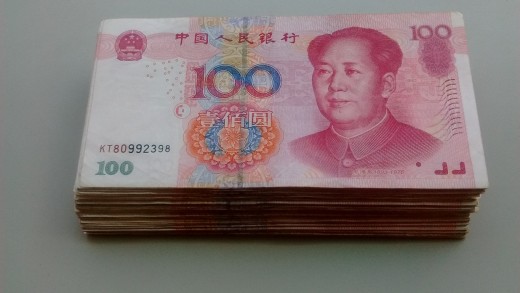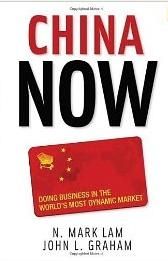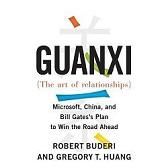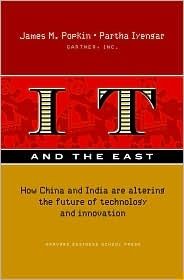Books - China Trio (Biz) 1

Many of These are about How to (Surprise!) Make Money in China
It is no secret, and this has been so for a long time, that capitalism is alive and well in the largest Communist country on earth. But it is also no secret that figuring out how to take advantage of this fact, particularly if you are a foreigner, is not an easy job.
It is a strange sort of capitalism, in many ways.
Hence, hundreds, if not thousands, of business books about China. Guides, predictions, histories, advice -- there are many books in each of these categories.
Some of them quite good, others slapdash affairs that are not worth investing in. This series attempts to provide brief overviews of what is out there, in hopes that this will lead you to better understanding of dragon-based capitalism.

Practical Advice for Doing Biz in China
By N. Mark Lam and John L. Graham
The book quickly starts by recounting a very interesting story about doing business in Old Cathay: specifically, how GM beat out Ford in 1995, with the result that the Buick was well ahead of Ford Taurus on the streets of the People's Republic of China.
This piece of now ancient history (bizwise) is recounted in order to underscore much of the practical advice contained in this book. Indeed, this book comes closer to being a useful how-to manual than most any other of the thousands on the market today about "doing business in the world's most dynamic market." "Dynamic market" can be translated here to mean "Nobody is ever sure what will change."
Japan comes to mind here also because the two authors of this book appear to have started out in Asia by giving courses to top management on how to do business in Japan. The two are both firm believers in the epigram that when in Rome do as the Romans do. Now, China is a very different Rome from Japan. Explaining this difference the authors begin by saying "History is always a good place to start", and then proceed to describe the evolution of both the legal system (Lam is an attorney) and the business environment (Graham a biz prof) in China. This part of the book is potted history, but at least it is readable.
Four different sections comprise the book. First is the overview of Chinese history, culture and business environment. Second comes advice on negotiating with Chinese counterparts. Third, differences among regions within China are noted. Fourth comes an essay on protecting intellectual property in a society not noted for its protections. The heart of the book is the second section. Here both the authors' general knowledge of international negotiations and their specific knowledge of China shine forth.
Section three, on the different regions in China, is of interest not simply for pointing out such differences, but for its practical suggestions as to what to do about them.
One of the featured players is Shirley Young, an American GM official of Chinese origin who was brought in to handle the negotiations with Shanghai Automotive Industry Corporation. "From the Spring into the late Summer the negotiations involved great numbers of Chinese executives and dignitaries who descended on Detroit to study their potential partners. Young organized GM's 1,000 plus Chinese American employees to meet and greet the visitors and formed a committee to advise the company on relations with China. She was likewise successful in delivering the top American executives to Shanghai." That is a big part of the way in which GM beat out Ford in this instance.
Here's a question for discussion prompted by this excellent book -- Can anyone follow the advice in this book, or just huge corporations?

Guangxi
By Robert Buderi and Gregory T. Huang
Although the authors do a good job of explaining the nuances of the term "guangxi" (which is pronounced gwan-shee), a quick grasp can be had by translating it as "connections" or "personal connections."
Buderi is known, oddly, for a book on the invention of radar. Somehow this technical background serves him well here when for example he and Huang discuss an investment in China made by Bill Gates. In the 90's, Gates created Microsoft Research Asia in China, writing a check for $100 million. Good will in a potentially huge market and first-class research in such things as internet-search, digital aspects in entertainment, and software for mobile devices were stated goals. The authors maintain this investment has paid off. But others are convinced it has been a waste of money. Depends, I suppose, on how important you believe products like these are: a) an Xbox simulation of water, b) a Chinese dictation system, and c) a "universal pen" capable of incorporating handwriting into computer documents. The book focuses on 2004, a year in which Microsoft was beginning to take Google more seriously (and well before Apple's iPhone and iPad).
Is the title of the book misleading, as most reviewers seemed to think. There is some analysis of how Microsoft went about hiring local experts in the technologies in which it is interested, and also some mention of the usual business dinners for toasting future success, but there is relatively little on businessman-to-businessman connections, old school ties, political ties, and the like, the things that really make up "guangxi."
At any rate, with respect to Gate's investment acumen, the game is not over, the battle rages on. Let's put it this way: If you want to seet one view of the forces in combat, this is one of your few options, and it is far more entertaining than a long article in a technical or business journal.
Or is it?

IT and the East: How China And India Are Altering the Future of Technology And Innovation
By James Popkin and Pratha Iyengar
This is a quote which basically sums it up: "We aim to provide IT strategists and decision makers with the forecasting tools necessary to frame a China strategy that best fits their challenges and aspirations . . ." The book reads like a purpose-built study much more than like a book marketed to a mass audience interested, for an amazing variety of reasons, in business in China and India. The book is, in fact, a Harvard Business School publication.
The book contains interesting historical background, but here is a pertinent question the book does not ask: Was history a guide when Deng Xiaoping one day announced that getting rich was glorious? Another problem is that the book is based on the idea of predicting the future. The factors relevant to such predictions, both for China and for India, are carefully laid out. But the predictions themselves play it safe by being highly generalized. In a way, though, it is hard to find fault with that, since the future is notoriously difficult to predict.
Accordingly, in spite of the aim expressed in the quotation above, it is less than clear how useful the book really is going to be to "purchasers of IT products and services or creators of those products and services."
At least "the future" is given a number -- 2012, to be exact. Here the age of the book comes into play, of course. At this point, the predictions can be confirmed or disconfirmed, setting aside their generality, if that is possible. And that will help in judging whether the methods by which they were arrived at are good or bad.
Are these methods good or are they bad?




Part of a series
Series within series, actually. Food & Cooking, for example, then -- within that -- series on vegetables, fruits, seafood, meat, etc. Books, too. Ideas, too. Travel, too. Key virtues:. pictures, clear step-by-step text. Delicious -- whether foods or ideas! All of the series, and all of the items in each series, can be found at this link: Lee White's Department Store











